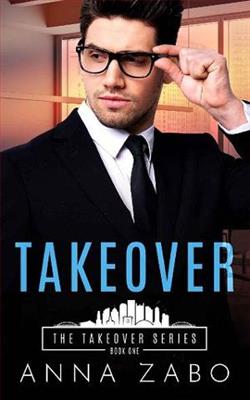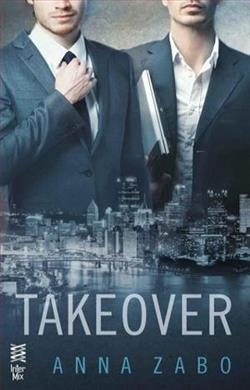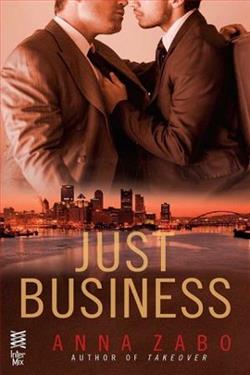Page 18 of Clear Path
“The Pittsburgh show’s been canceled. Creative differences with the gallery owner. I’m surprised you haven’t already heard. Julie’s been spreading the news.”
“I take anything that woman says with an entire pillar of salt.”
Rory choked back a laugh.
Diana reached across the table and squeezed her hand. “I’m sorry about your setback, though. Your work is important to this town, to the whole region. Don’t let anyone diminish that.”
Rory was surprised to find herself blinking back grateful tears as she headed outside.
She crossed the street and settled on a bench in a small green space on the square—another of Julie’s improvements. Rory had to admit this one was genuinely beneficial. The wedge of grass featured native plantings, a Little Free Library, and comfortable seating. She sipped her drink and unfolded the newspaper to read the article.
The piece was mostly accurate, describing theVanishing Coal Countryexhibition as “a visual exploration of economicand cultural shifts along the Great Allegheny Passage.” It quoted Professor Evan Jeffries at length about the historical significance of documenting these changes. The only problem was the article ended by promotingPush/Pullat the Hot Metal Gallery, a show that wouldn’t happen. At least it didn’t promise nude selfies, she comforted herself with a wry laugh.
Her phone buzzed persistently in her pocket, vibrating against her thigh. No wonder Tripp was blowing up her phone. His gallery was probably fielding inquiries about her now-canceled show. Lack of interest, huh?
She’d have to deal with him at some point, though. She might as well get it over with. But when she pulled out her phone, it wasn’t Tripp’s name flashing on the screen. It was Lucas’s. Hot anger flared in her belly. Lucas Harrison may be Tripp’s closest friend, but he had no right to insert himself into her career, not now. Not after everything.
They’d met when she was nineteen and he was thirty-two, a rising star in fashion photography. He’d shot her forVogue, then asked her to dinner. The power imbalance should have been a red flag, but she’d been young, awestruck, and flattered by the attention.
For a while, they’d been good together. Lucas introduced her to photography, encouraged her interest in being behind the camera instead of in front of it. He bought her first serious camera—a Canon 5D Mark III—as a gift for her twenty-first birthday. It was the first time anyone had treated her as anything other than a beautiful face.
As she delved into photography and developed her own style, her work began to attract attention. And that’s when everything changed. Lucas’s encouragement turned to disparagement. He deemed her compositions amateur; her use of light and shadow, predictable; and her choices of subject, pedestrian. Around the same time, he began to critique her appearance, pointing outimaginary flaws, asking if she’d put on weight, had slept poorly, really intended to wearthat.
The final straw was the tantrum he threw on the set of her first paid shoot. A niche Brooklyn arts magazine had invited her to do a photojournalistic piece on public art. She arranged a shoot in the Pratt Institute’s Sculpture Park and called in some favors from fellow models to pose for a pittance. Her excitement was through the roof. But Lucas, who’d been in a foul mood for days, showed up uninvited and criticized everything from the lighting to the models to her aperture speed—publicly and at full volume.
She’d had campus security remove him and finished the shoot. Then she gave him time to cool off before going home to the apartment they shared. Instead of using the time to reflect, he got plastered. When she confronted him about his behavior, he grabbed her camera and hurled it at the wall behind her. She moved out the same night.
In the six years since, she’d earned a BFA in photography and built her career focusing on documentary photography. She had a hard-won reputation for being a deliberate, thoughtful photographer with a talent for evoking emotion. She knew her work would speak to a larger audience—if she could only find one.
Calling in a favor to get the show at Hot Metal had felt like swallowing broken glass, but she’d believed it was worth it. It wasn’t. Not if Lucas had really told Tripp to try to coerce her into including nude photos in the show. Nudes. Like some hormonal fourteen-year-old.
On second thought, she decided, Tripp could deal with the fallout without her. She deleted her messages without reading them and blocked both Tripp’s and Lucas’s numbers. She didn’t need Lucas’s connections or Tripp’s gallery. She had her own contacts.
She scrolled through her phone and found Professor Jeffries’ number. The director of the Western Trail History Center had been an early champion of her work, featuring it in a small group exhibition last year. And now he was showcasing her visual history of the miners who lived in the company town inVanishing Coal Country. Evan had connections at most of the region’s cultural institutions. If anyone could help her find a new home forPush/Pullon short notice, he could.
The call connected on the third ring.
“Rory! Are your ears burning? The volunteers are all buzzing about the article in theHerald.We’re expecting a crowd today.”
The professor’s obvious delight made her smile despite her current mess. “That’s great to hear. I’m actually calling to see if you could brainstorm a solution to a problem with me.”
“I’d love to. The center doesn’t open to the public until noon. Can you swing by this morning?”
“I’m on my way.”
10
The Western Falls History Center, outside Union Hill
Evan Jeffries, Ph.D., sat on a curved bench in the small, empty lobby. The history center had closed almost an hour ago, and the last volunteers had left, flipping the sign on the door to ‘closed.’ Evan stood and walked through the exhibit space, turning off lights as he went. He paused in front of the replica company home set up in the biggest of the four rooms. Incredibly, the small wooden structure that had housed an entire family fit within the room.
He imagined what life must have been like for the children who’d grown up in the cramped quarters. Had they played jacks on the rough-hewn floors? Gathered around the pot-bellied stove for warmth? Chased their siblings through the narrow hallways?
Then he reminded himself that these long-ago children hadn’t experienced much of a childhood at all. Many of the boys left school and joined their fathers in the mines when they were as young as eight or nine—working six days a weekas breaker boys, separating out slate and other impurities from the anthracite. And the girls, not permitted to work in the mines, helped their mothers try to stretch their pennies at the overpriced company store, as well as with the washing and cooking.
No, it wasn’t a pretty past. Not one to cast a nostalgic glow over. But it was the history of this region, and it was being erased.
Ithadbeen being erased, but no longer. Thanks to Aurora Westin. The photos and the oral histories she gathered from the surviving miners would preserve their stories and the story of the region for future generations.















